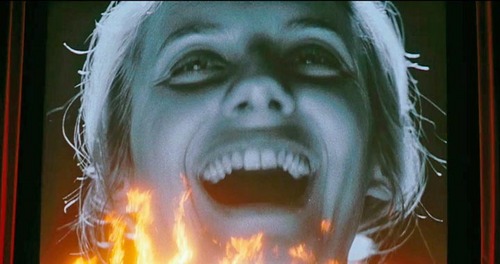In his two-part round-up of summer movies, David Bordwell finds himself not only impressed with Quentin Tatantino’s latest film (after finding “Death Proof” “merely proof of the director’s creative death”), but with the quality, quantity and intensity of the online analysis of it:
It’s a measure of the changes wrought by the Internets that “Inglourious Basterds” has in about a month amassed a daunting volume of serious commentary. Without benefit of DVD (let’s be charitable and assume no BitTorrenting), dozens of online writers have dug deep into this movie. As if to demonstrate the virtues of crowdsourcing, this flurry of critical discussion has shown that most professional movie reviewers have tired ideas, know little about film history, and are constrained by the physical format and looming deadlines of print publication. At this point, I’m very glad I’m not writing a book on Tarantino; the sort of secondary sources that normally take years to accrete have piled up in a few weeks, and the pile can only grow bigger, faster.
(He also offers well-deserved praise for the “knowledgeable readers” here at Scanners!)
And yet, as always, DB provides plenty of his own insights about the movie’s take on revenge, Tarantino’s preference for centered widescreen compositions, scene construction, story structure/architecture, texture, detail…
I particularly enjoy the parallels he draws to the exquisitely prolonged suspense techniques of Sergio Leone’s Westerns:
Tarantino can lay bare his chapter-block architecture because his scenes are devoted to this sort of prolongation. You may remember the bursts of violence, but what he fashions most lovingly is buildup. Here the spirit of Leone hovers over our director. In each entry of the “Dollars” trilogy, you can see the rituals of the Western getting more and more stretched out, filled with microscopic gestures and eye-flicks.
And DB has the most beautifully written explanation of why saying Tarantino’s movie-movies are about movies is not the same as saying they are utterly cold or meaningless:
Many viewers seem to assume that Tarantino’s film is somewhat cold. The Basterds are grotesques, parodies of men on a mission; Shosanna, though in a sympathetic position, must maintain a frosty demeanor. Even revenge, so central to films that Tarantino admires, is served frigid here, a purely formal postulate, like the urge for vengeance animating classic kung-fu films.
There is cinema that asks you to empathize with its characters. Then there is cinema that aims to thrill you with a cascade of vivid moments. There is “How Green Was My Valley” (1941) and “Citizen Kane” (1941). I think that Tarantino’s films mostly tilt to the vivid-moment pole, seeking to win us through their immediate verve, the way film noir and the musical and the action movie often do. The young man arrested by great bits from blaxploitation and biker movies sees cinema not as merely piling up cinephiliac references–though that’s surely part of it–but as a flow of tingle-inducing gestures, turns of phrase, shot changes, musical entrances. There can be pure pleasure in having time to see how actors move, or savor their lines, or simply fill up physical space by being centered in the anamorphic frame. Our fascination with Landa comes, I suspect, from the spectacle of a man who is utterly enjoying himself every second. […]
So I’m not convinced that “Inglourious Basterds” lacks emotion. The emotions Tarantino aims for will arise not from character “identification” but from the overall structure and texture of the work. We are to be stirred, enraptured, astonished by a procession of splendors big and small. It’s the tradition (again) of Eisenstein, particularly in the “Ivan” films, but also of Leone and, in another register, Greenaway. Formal virtuosity isn’t necessarily soulless; it can yield aesthetic rapture.
Those paragraphs on the soul of movies bring tears to my eyes.











